Cannes May 24
Mektoub My Love: Intermezo (Abdellatif Kechiche). Competition.
Peter Bradshaw, who approved Kechiche's previous feature, Mektoub My Love: Canto Uno (which never got US distribution), as being justified and "interesting," departs company from him with the new film, which he says is "colossally self-indulgent" and "blows its cinephile credentials in four hours [actually 3 hours 26 minutes] of indulgent sweat" and indulges a "female buttock fetish" from virtually the first frame. He gives it a miserable 2 out of 5 stars in his Guardian review. Bradshaw says this is "the most purely experimental film" in this year's Cannes Festival. It has a scene on a beach and then a scene in a nightclub that lasts "a staggering three hours" and adds up to a "monumental photolove-smutfest." The previous "Mektoub" film was accused of "the toxic male gaze," but, Bradshaw points out, it was not a "white gaze," because of Kechiche's sharp, "sympathetic eye" for the " North African communities in Sète," in southern France where it and The Secret of the Grain were filmed. Justin Chang, now with the LA Times, calls this film "the disaster of the Cannes Film Festival." Chang notes Kechiche won the Palme d'Or six years ago for his young lesbian love story, Blue Is the Warmest Color. Subsequently the leads, Léa Seydoux and Adèle Exarchopoulos, described the shoot in ways that made Kechche sound abusive and over-demanding on set, and he's come on the wrong side of the #MeToo movement. Here, says Chang, he "sells out his own talent." Guy Lodge in his Variety review leads up more gently to his pan, but eventually says "Intermezzo" is "vacuous, almost spitefully monotonous." The only plot setup is in the opening beach segment, he explains; the three-hour nightclub part is just ogling visuals. This came out at the absolute bottom of the Jury Grid, 1.5.
Elia Suleiman in It Must Be Heaven
It Must Be Heaven (Elia Suleiman). Competition.
Suleiman, playing a version of himself, travels from his native Nazareth to Paris, Montreal, and New York looking for a producer for a film in his new feature, It Must Be Heaven, while finding surprising parallels with his Palestinian homeland, of which he now sees the rest of the world as a "microcosm." In his "delightfully absurdist, unfailingly generous gaze" he stands apart from a "Palestinian landscape generally perceived as monolithic," his distinctive work by now "not just well-known but eagerly anticipated," says Jay Weissberg in his Variety review. Acting in his own films (here wordlessly), Suleiman's "wide-eyed, expressive face" Weissberg adds, is now "forever compared with Buster Keaton" as he regards "a world full of small wonders and incongruities." It's been ten years since he released a feature. This time the style still "has all the hallmarks," but the "vision shifts" from the "struggle in Palestine" to the "condition of the global Palestinian." Weissberg foresees a positive reception worldwide. Peter Bradshaw gives This Must Be Heaven 3 out of 5 stars, but with reservations. "The latest satire-fable from Elia Suleiman," he writes, "is as droll as ever, but while there’s a kernel of seriousness here it too often lapses into elusive mannerism." Deborah Young is far more appreciative in her Hollywood Reporter review, which starts by saying Suleiman "uses his own face and body to express the soul of Palestine in his films," and "never more so" than this time. And though he thought Palestine was the world of guards and check-points, he finds the rest of the world too has become a police state, full of arms and menace. Yet all this is depicted with the lightest of touches, Young shows. It Must Be Heaven wound up with a 2.6 on the Jury Grid, on a par with The Traitor and Bacaru. The film wound up with the Jury Special Mention award.
Virginie Efira, Adèle Exarchopoulos, Sibyl poster
Sibyl (Justine Triet). Competition.
It's a comedy about a jittery, tippling shrink with Virginie Efira, Adèle Exarchopoulos, Gaspard Ulliel, and others in the cast. AlloCiné's press rating is 4.0, a chorus of raves, really (with Cahiers du Cinéma the most enthusiastic, always unusual), while Bradshaw in his Guardian review calls it a "muddled, silly comedy" and gives it only 2 out of 5 stars. Eric Kohn of IndieWire sees the film as "a stylish thriller with dark ideas about the dangers of storytelling" that deliberately unwinds a "ludicrous soap-opera mess" of a plot. Virginie Efira, star of Triet's 2016 In Bed with Victoria, is the psychiatrist who records distraught new patient Adèle Exarchopoulos, an actress tormented by an unwanted pregnancy by coming costar Gaspard Ulliel, shrink planning to use her new patient's story in a novel, but also tormented herself by memories of old flame Niels Schneider - and also with doubts about her deception. Her own shrink tells her to stop analyzing Adèle's character because she can't even analyze herself. Like Assayas' recent Non-Fiction, says Kohn, this is "a riotous sendup of the dangers facing narrative in an age of distraction." Guy Lodge in his Variety review calls this "a highly pleasurable collaboration" (with Efira) that's "a witty, slinky psychodrama with just enough on its mind." This setup sounds like Ozon, and indeed Lodge calls Sibyl "certainly the most purely enjoyable French fancy to play in Cannes’ top tier since François Ozon’s Double Lover two years ago." Having loved In Bed with Victoria, though my colleagues at the Rendez-Vous with French Cinema din't seem to get much out of it, I can't wait to see Sibyl. Kohn says this is Exarchopoulos' "most involving turn" since Blue Is the Warmest Color," and the rest of the cast sounds tasty. It did not do fabulously on the Jury Grid though, ;winding up with 1.8, fourth from the bottom.




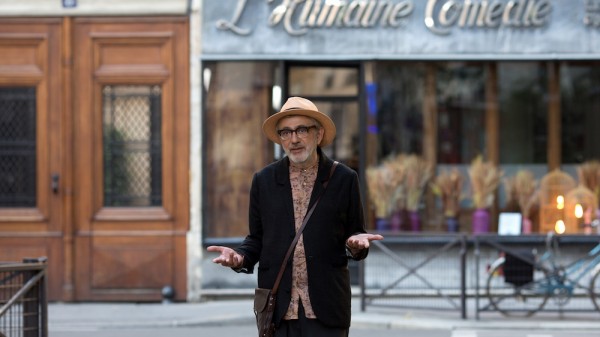
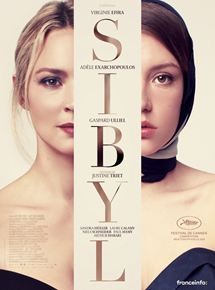

 Reply With Quote
Reply With Quote


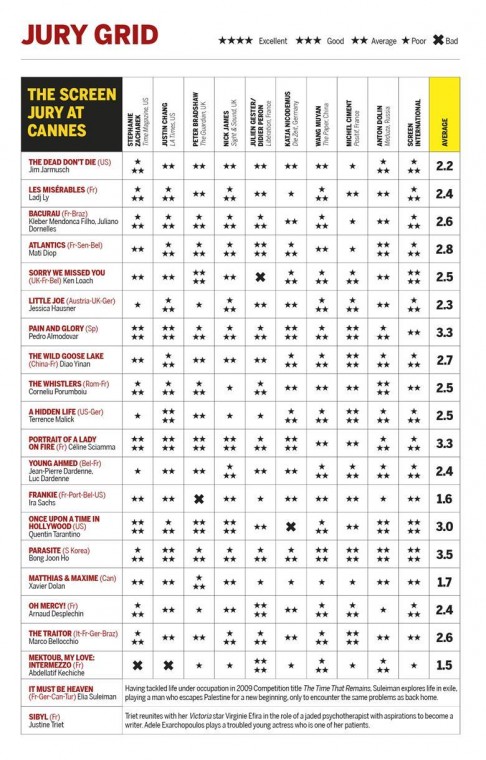

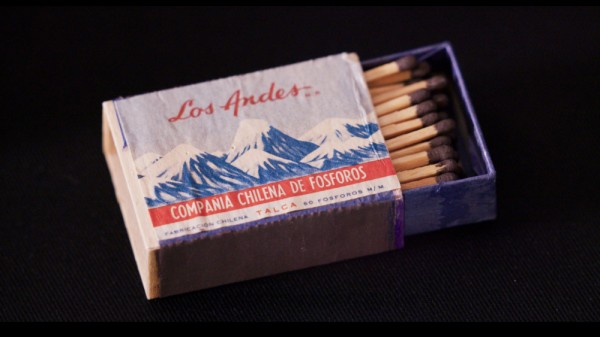

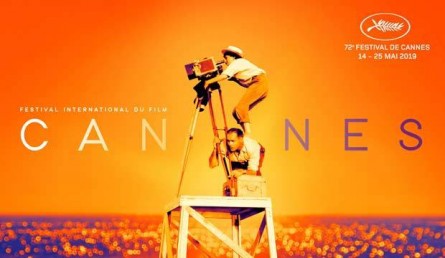
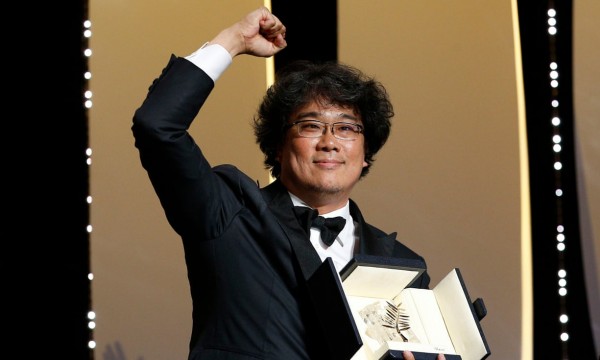
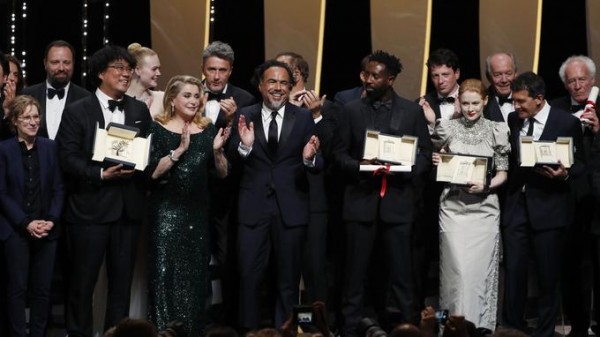
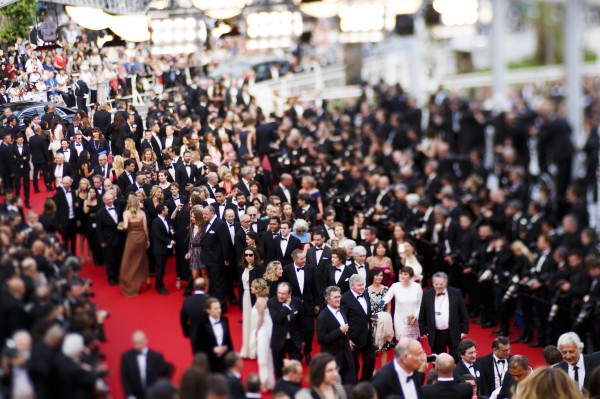

Bookmarks